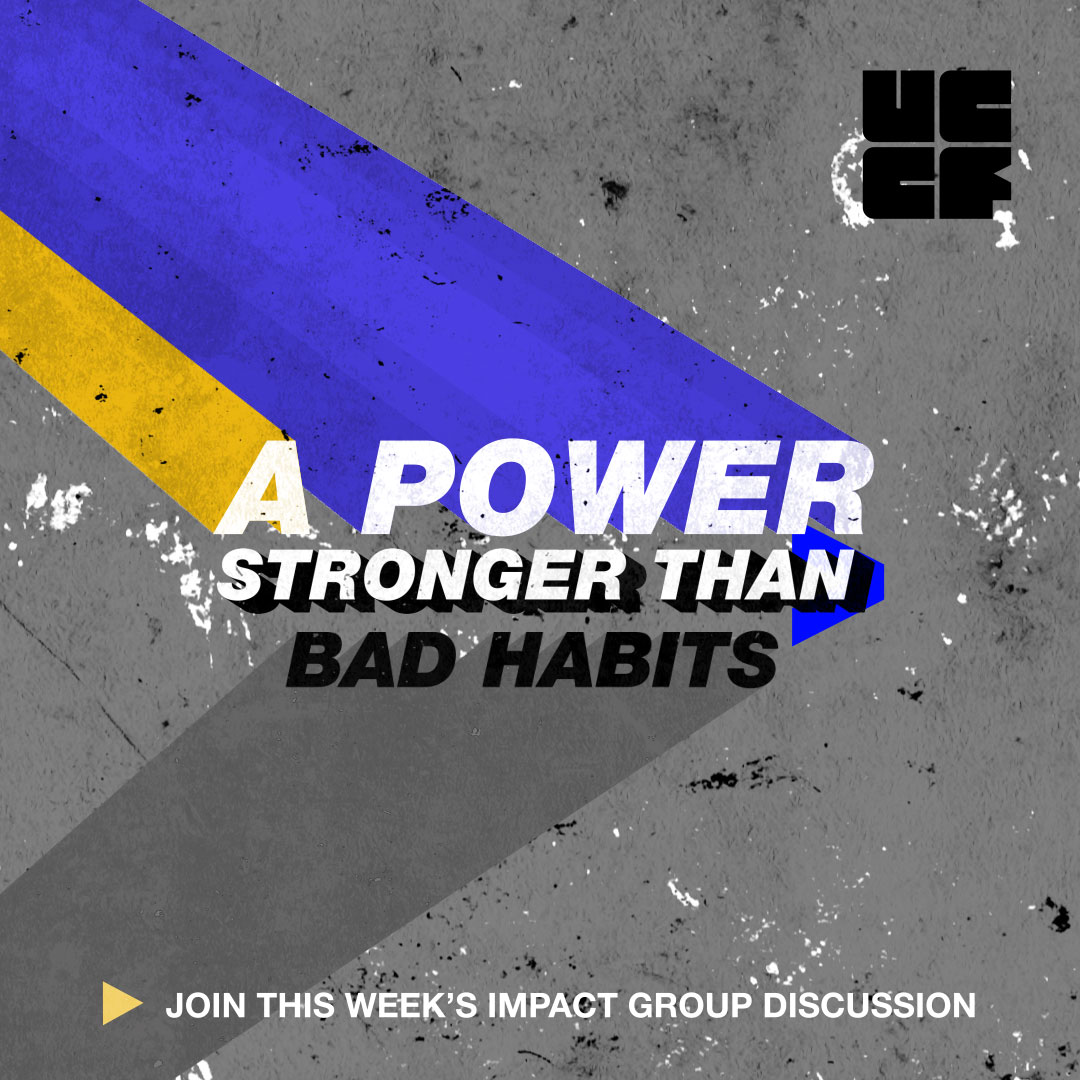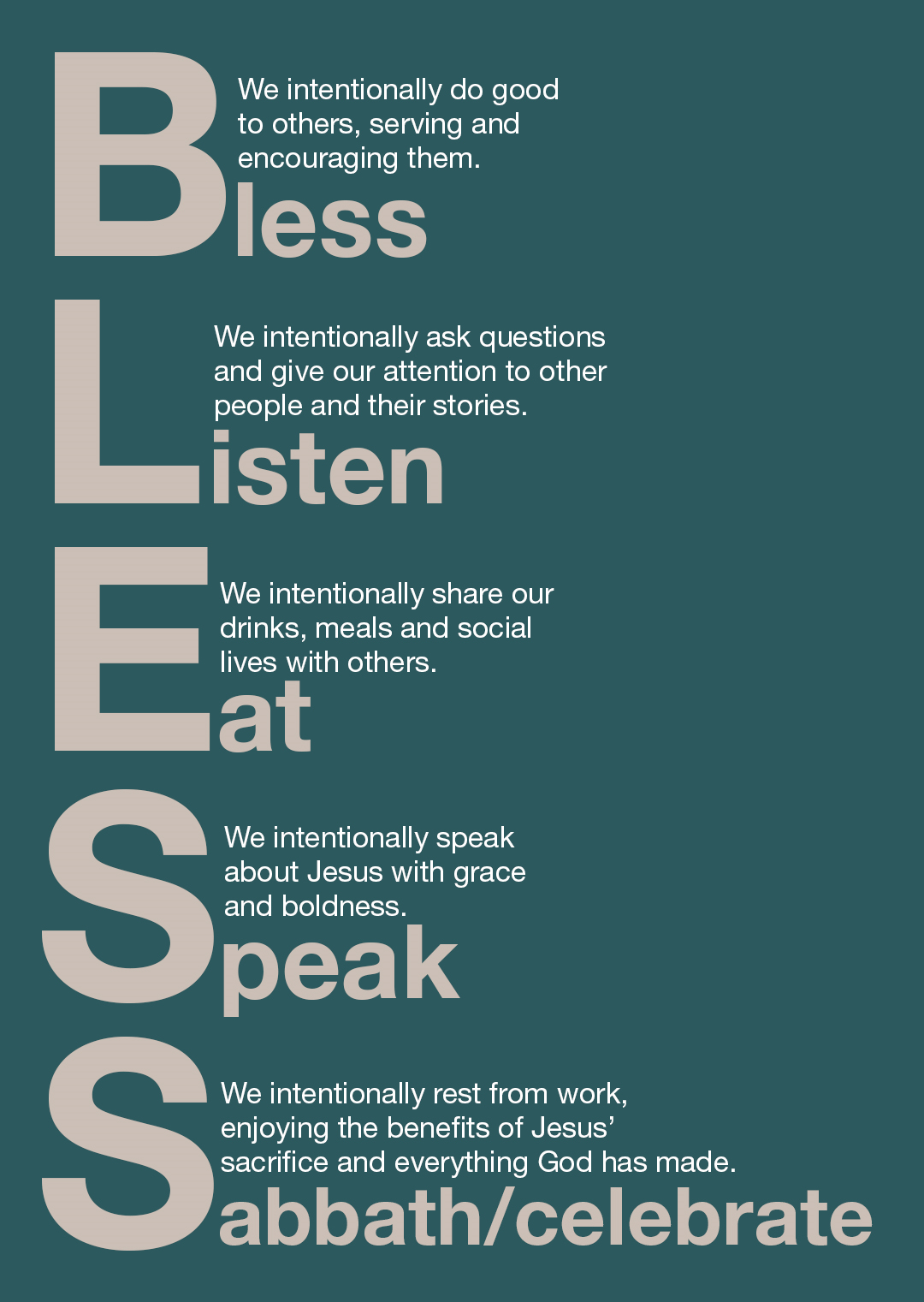
Ready for Impact (10 minutes)
Take time to welcome any newcomers and catch up on the past week (over drinks or snacks if possible). Then discuss the following question:
- What little things best help to boost your mood throughout the day?
(Answers might include: a cup of coffee, a message from a friend, a favourite snack etc.).
Over this term, we’re looking at how knowing Jesus gives his followers strength to face the common pressures of life in a way that nothing else can.
Pray a short prayer asking that, however much group members have previously come to know God, they’d know him better as a result of your time together.
Impacted by the Word - Part 1 (10 minutes)
In this first section, we’ll consider what wider society says about how we should respond to our bad habits.
Download this video to watch offline or read the transcript here.
- Have you ever made a New Year’s resolution? How long did you manage to keep it?
- Why do you think good habits are so hard to maintain, and bad habits are so hard to break?
Impacted by the Word - Part 2 (20 minutes)
Now let’s look at the relationship that the Bible says has the power to break bad habits.
Download this video to watch offline or read the transcript here.
Read Psalm 23. In this famous psalm, David compares his experience of being cared for by God to a sheep’s experience of being cared for by a good shepherd.
- Make a list of all the ways that the good shepherd cares for his sheep (verses 1-4).
- One modern shepherd says, “Sheep who do not trust their shepherd are restless.” How are humans also restless when we do not believe we will be provided for?
- We are especially likely to turn to bad habits when we feel hungry, angry, lonely or tired. Why is it so difficult to trust that we will be provided for at these times?
- Look back at the list you made earlier. If you knew the provision of God in these ways, how might this change how you view your bad habits?
David saw the shepherd’s commitment to him was so strong that he would walk ‘through the darkest valley’ with him (verse 4). Jesus picks up this language of being the Good Shepherd. His commitment to us was so deep that he would lay down his life for us at the cross (see John 10:11). He remains with us today by his Spirit.
- Jesus loves you, died for you, and is present with you today. How can knowing him give you a fresh power over your bad habits?
Christians are just as prone to temptation and sin as anyone else. Someone in your Impact Group may speak about addictive behaviour in their life. Addictive behaviours increased in students during and since the pandemic. Addiction is not confined to any particular group of people, race, class or gender. The myth that some people are above these temptations can stop people getting the help they need.
The key to recovery is honesty. A person must be able to admit that they have an addiction and that without God’s help they are powerless to overcome it. Only then can they gain the hope of recovery and freedom. No matter what someone has done, no matter how severe their addiction may be and however badly they struggle, there is forgiveness and hope in Jesus Christ.
Those struggling with addictions will need support beyond what the CU can offer. If possible, they should seek help from mature Christians within their local church. If this is impossible for any reason, encourage them to look for appropriate help elsewhere. They might start by talking with a parent, your CU Staff Worker, the university welfare team, chaplaincy or counselling services, or a GP.
The Bible testifies that Jesus has taken the penalty of sin, guarantees a future free of the presence of sin, and has broken the power of sin over his people. However, being freed from the power of sin does not imply overnight deliverance from particular struggles.
Whilst this sometimes occurs, the Bible gives us expectation that change will come slowly – like farmers waiting for crops to grow (Galatians 6:7), children slowly growing up (Ephesians 4:14-15), or long-distance runners inching towards the line (1 Corinthians 9:24). Each of these images reminds us that deep change occurs over a lifetime: God’s word slowly reframes our perspective on ourselves and the world. Jesus gradually extends his reign over our lives, and the Spirit steadily makes obedience more habitual.
God renews us – but not all at once, but ‘day by day’ (2 Corinthians 4:16). This should give us a sense of spiritual realism. We should not grow unduly discouraged, yet be reassured that today’s small acts of obedience are of critical importance.
Impacting Our Hearts (10 minutes)
David begins Psalm 23 describing the effect of having the Lord as his shepherd: “I lack nothing.” The point is simple: when Jesus is our shepherd, we find everything we need in him.
- Read Psalm 23:1 aloud again then spend some time in prayer together. Bring your needs, longing and desires to God, asking that you would find them met in him, and not in other coping mechanisms.
- On a post it note or on their phone, ask each group member to write one practical step they would like to take as a result of this session.
Many people have found it helpful to learn Psalm 23 by heart. You could encourage members of your group to memorise the Psalm, perhaps starting with verse 1, reciting it to themselves over the next few days.
If you’re able to sing in your group time, there are plenty of songs that will help you celebrate how Jesus offers true safety and peace, including: The Lord’s My Shepherd; This Is Amazing Grace or Amazing Grace (My Chains Are Gone).
Impacting the University (15 minutes)
Because we lack nothing, we can turn from our bad habits and replace them with habits that benefit others and help us know God better.
It can be helpful to think about these good habits using the BLESS acronym. Save the picture below and post it in your group chat to aid discussion:

- Identify which of these good habits you’d especially like to develop as individuals and as a group.
- How could you make a start on growing this habit this week?
Close this part of your group time together, praying for each other’s needs.
Wrap-up – TACOS 🌮
Thank You – Thank everyone for coming, and ask someone to thank God for your time together in prayer.
Ask – Ask those who are new to reading the Bible if they’d like to explore Uncover, a set of sessions in Mark’s Gospel, allowing them to investigate one of the earliest accounts of Jesus’ life alongside one of you.
Church and CU – What does the CU have planned ahead? And what help would group members value in finding a local church?
Others – Who else could you invite to join your CU Impact Group next week? These friends don’t need to be followers of Jesus and may really appreciate being invited.
See You Soon – Tell the group where and when you’ll meet next week, and arrange who will bring snacks. (You might like to alternate healthy and less healthy weeks!). See if anyone would be up for sharing a meal or just hanging out in the meantime!